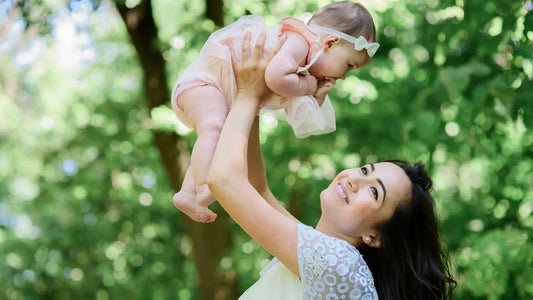Shielding Newborns: Prevention of Hospital-Acquired Infections
As a new mom or dad, the mere thought of your precious newborn catching a dangerous infection is terrifying. But before you start subconsciously cradling that precious bundle a little tighter, take a deep, grounding breath.
While nosocomial infections refer to dangerous, antibiotic- resistant germs posing real threats to fragile newborns, understanding what they truly are and how to protect against them puts your protective parent instincts into high gear. With some knowledge and the right precautions, you can be proactive in shielding your fresh bundle from these sneaky hospital bugs.
What Exactly Are Nosocomial Infections in Newborns?
Nosocomial infections (sometimes called hospital-acquired or healthcare-associated infections) refer to any infectious diseases contracted from microscopic bacteria, viruses, or fungi that babies encounter while receiving care inside a hospital environment.
These pathogens can sneak in through a myriad of potential entry points:
- Unsterile birthing equipment or medical devices
- Unsanitary linens or surface areas
- Inadequate hand washing from healthcare workers
- Contact with other infected infants, mothers, or visitors
Generally compromised immune systems make newborns exceptionally vulnerable targets for these microscopic invaders compared to older children and adults. And once these sneaky infections take hold inside those delicate bodies, the complications can rapidly escalate into life-threatening territory if left unchecked.
Effective Strategies for Shielding Newborns
The single most effective line of defense begins at hospitals themselves, where properly sterilizing rooms, maintaining cleanliness standards, and enforcing strict disinfection procedures to keep germs at bay.
But new parents, too, should assume full accountability for safeguarding newborn immune fortresses starting at those first skin-to-skin bonding sessions:
- Insist on Sanitized Hands - Anyone interacting with the baby must scrub in or sanitize immediately beforehand
- Avoid Incision Contact - Steer clear of touching or breathing near post-delivery wounds/catheters to prevent exposures
- Embrace Visitor Discretion - Only allow trusted individuals with known sound hygiene into nurseries - no excessive traffic.
- Breastfeed Baby ASAP - Besides numerous benefits, early breast milk provides immunity-strengthening properties
- Consider Ayurvedic Baby Products - Many parents are turning to traditional Ayurvedic baby products, known for their gentle and natural ingredients, to support their newborn's delicate skin and overall health.
- Explore Immuno Booster Syrups - While it's crucial to consult with your pediatrician first, some parents find that carefully selected immuno booster syrups can help strengthen their baby's natural defenses against infections.
- Start Skin-to-Skin Cuddling - That sacred skin contact is bacteria's worst nightmare, shielding newborns in parental love
- Be Cautious with Circumcisions - Even this common practice poses elevated nosocomial risks without precautions
Ultimately, the cardinal rule for new parents revolves around treating those fresh bundles of joy with the same level of sacred hygiene observed by your medical team. Don't slack on being that first line of defense.
Signs Baby May Have Contracted a Nosocomial Infection
While prevention is always ideal, the sad reality remains that even hyper-vigilant parents may occasionally miss an infectious microbe sneaking through. Especially with many nosocomial strains requiring a few days or weeks to manifest obvious symptoms.
Some of the most common red flags include:
- Any fever or low body temperature irregularities
- Appetite loss, lethargy, or persistent fussiness
- Pus, redness or swelling around wounds/eyes
- Difficulty breathing, unusual rashes or skin discoloration
- Diarrhea, vomiting, or other gastrointestinal upset
At those earliest signs of suspected infection, be sure to promptly alert the baby's pediatrician and get them evaluated as soon as possible. Nosocomial infections are treatable, provided swift interventions begin before further systemic complications take root.
Conclusion
Much like everything else in life, where we start absolutely matters. Those first brave fights firmly shape how prepared our children's internal defenses will be for the endless microscopic attacks awaiting them at every turn. The more precautions we prioritize early on, the more impenetrable that frontline shielding becomes down the road.
So take maximum advantage of every immunization opportunity available during your birth journey. Continuously educate yourselves about potential exposures while implementing every proactive prevention measure possible. And most importantly, trust in the unique intuition and bonding signals only you share with your newest addition.
Shop for the Best Baby Care Products
FAQs
1. What are nosocomial infections?
Ans. Nosocomial infections are infectious diseases that newborns can contract while receiving care in a hospital environment.
2. Why are newborns especially vulnerable to hospital-acquired infections?
Ans. Newborns have generally compromised immune systems, making them more susceptible to infections compared to older children and adults.
3. What are some common ways nosocomial infections can spread to newborns?
Ans. These infections can spread through unsterile equipment, unsanitary surfaces, inadequate hand washing by healthcare workers, or contact with infected individuals.
4. How can parents help prevent nosocomial infections?
Ans. Parents can insist on hand sanitization, limit visitors, encourage skin-to-skin contact, start breastfeeding early, and be cautious with procedures like circumcision.
5. What are some signs that a baby might have contracted a nosocomial infection?
Ans. Signs include fever, low body temperature, loss of appetite, lethargy, unusual rashes, difficulty breathing, and gastrointestinal issues like diarrhea or vomiting.
6. What should parents do if they suspect their newborn has an infection?
Ans. Parents should promptly alert their baby's pediatrician and get the baby evaluated as soon as possible.




